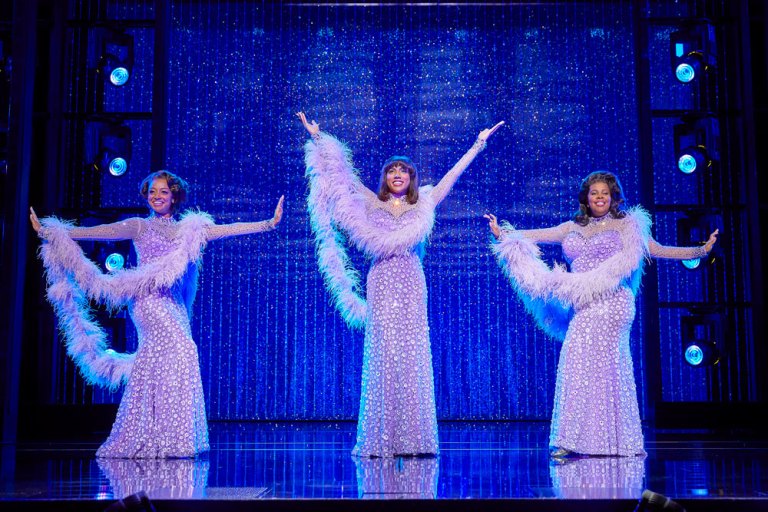- The hearts of audience members to beat at the same time… and even with complete strangers.
- The new research also showed couples and friends continue to react in sync during the interval of a show.
- Scientists have found that synchronisation can cause people to bond and like each other more.
Watching a live theatre performance can make your heart beat synchronise with other audience members, a new study has shown.
 The research, conducted by neuroscientists from University College London in association with Encore Tickets, monitored the heart rates and skin response of selected audience members at a live theatre performance of Dreamgirls, the Tony and Olivier award-winning musical. It found that as well as responding emotionally to the performance as individuals, the audience actually responded in unison through their heartbeats, with their pulses speeding up and slowing down at the same rate as each other.
The research, conducted by neuroscientists from University College London in association with Encore Tickets, monitored the heart rates and skin response of selected audience members at a live theatre performance of Dreamgirls, the Tony and Olivier award-winning musical. It found that as well as responding emotionally to the performance as individuals, the audience actually responded in unison through their heartbeats, with their pulses speeding up and slowing down at the same rate as each other.
Dr Joseph Devlin, Head of Experimental Psychology at University College London, says: “Usually, a group of individuals will each have their own heart rates and rhythms, with little relationship to each other. But during experiences with heightened levels of emotion, people’s heart beats can become synchronised, which in itself is astounding.
Devlin adds “Experiencing the live theatre performance was extraordinary enough to overcome group differences and produce a common physiological experience in the audience members.”
Scientists have found that when an environment makes people synchronise their bodies with each other, it can cause them to bond and in turn like each other more.
This suggests that going to the theatre can connect individuals on a deeper level, enhancing social bonds between people more powerfully than previously thought.
New research for Encore Tickets, the UK’s leading independent ticket provider, found that almost half of people (46 per cent) enjoy the theatre experience because of the atmosphere that comes with being in the audience, and almost two thirds (59 per cent) of people feel emotionally affected by a live performance.
Heart rate synchronicity has been displayed in previous studies, such as a study by scientists who measured the heart rate of the fire walkers in Spain. They saw observers’ hearts beat in time with the firewalkers, and interestingly they were more synchronised the more closely the two were related by family or marriage.
And when it comes to theatre, if you experience the thrill of a live production with friends or someone you love, you will even continue to react in sync during the interval.
During the interval, audience members typically break into smaller social groups, spending time with people they know at the bar or in the lobbies and the UCL study confirms that at this point, as a whole, participants’ heart rate synchrony decreased. However, what was particularly interesting, was that participants continue to show synchrony within their social groups, suggesting you stay connected with the people you know but fall out of sync with the other members of the audience.
Dr Joseph Devlin, says: “Our hypothesis is that it’s at this point, the interval, that the audience members are engaged with each other, discussing the show within their social groups. During this social interaction with each other, we can see that their arousal synchronises with the people that they know, but not with the rest of the audience as a whole.”
Without the shared experience of the performance driving a common physiological response, you revert back to a more normal situation where people’s hearts beat at their own time. When the show returns after the interval, synchronised heartbeat response across the audience members is seen again.
Research shows that romantic couples and highly effective teammates synchronise their hearts so that they beat in time with each other. Their coordination has been linked to team performance, trust, empathy and liking of each other. This suggests that the unified response seen during the live theatre performance can help to break down social differences and bring people together.
Dr Joseph Devlin, continues “This clearly demonstrates that despite the social group differences, the performance was a strong enough influence to cause physiological synchrony, engaging the audience as a whole.”
This follows previous findings drawn from research by UCL in association with Encore Tickets, which found that experiencing a live theatre performance could stimulate your cardiovascular system to the same extent as a 28 minute workout.

